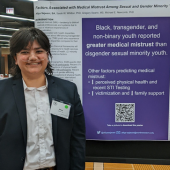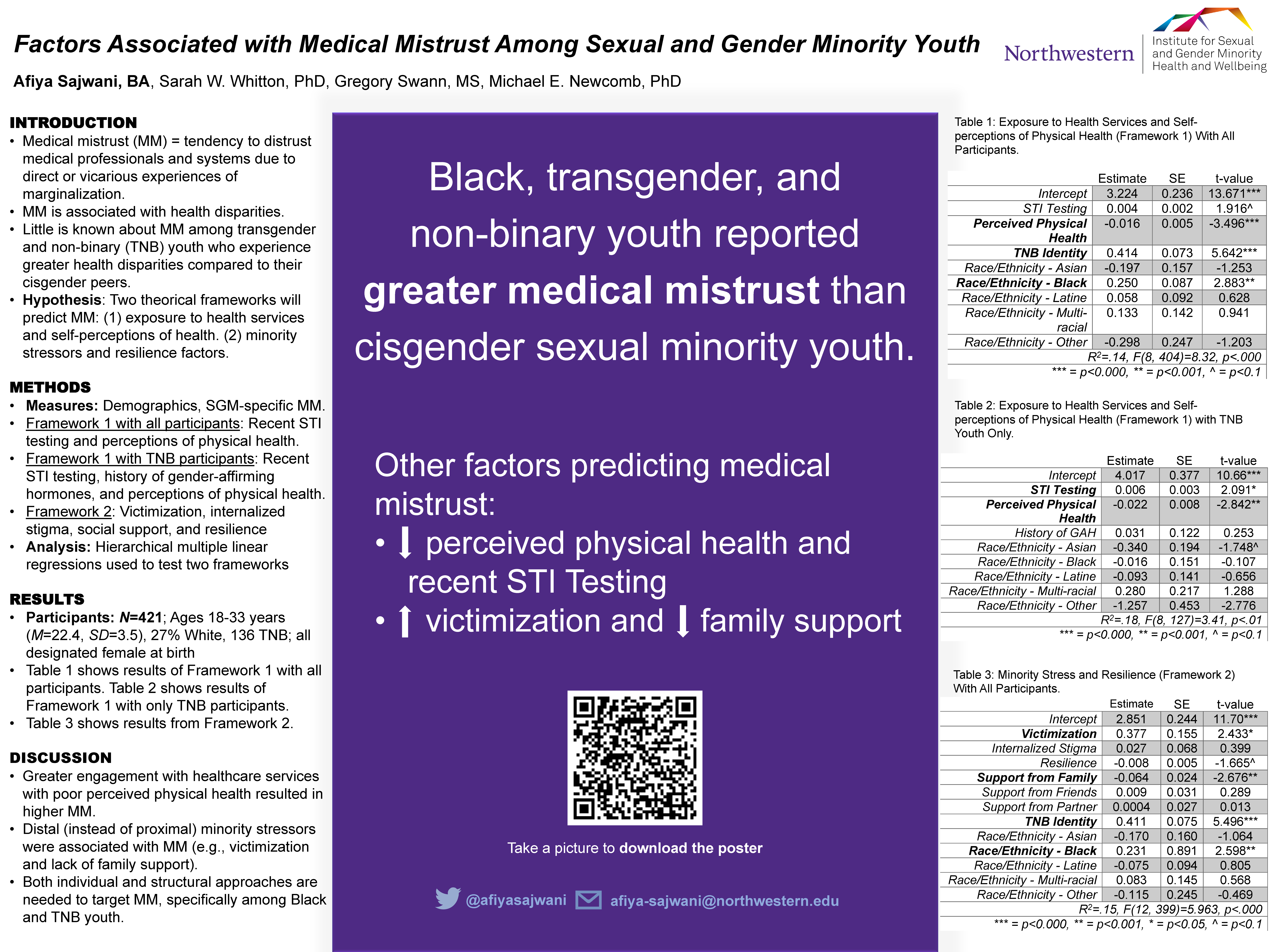Afiya Sajwani Receives Award for Poster on Medical Mistrust
My hope is that this work can highlight avenues for medical professionals and health researchers to target to improve health disparities for youth, especially Black, transgender, and non-binary youth.”
Afiya Sajwani

ISGMH staff member and graduate student Afiya Sajwani received three awards for their poster titled "Factors Associated with Medical Mistrust Among Sexual and Gender Minority Youth," which was presented at the 2023 Society of Pediatric Psychology’s Annual Conference. They received the 2023 Diversity Poster Award in addition to awards from the Gender Health and Adolescent and Young Adult Health Special Interest Groups at the conference.
Under the mentorship of Michael Newcomb, PhD, Sajwani used an existing data set to analyze medical mistrust among sexual and gender minority (SGM) youth designated female at birth. Their project looked at factors that are predictive of medical mistrust, defined as the tendency to distrust either medical professionals individually or the larger medical system due to personal, historical, or vicarious experiences of discrimination. In this study, Black, transgender, and nonbinary youth reported higher levels of medical mistrust compared to white, cisgender, and sexual minority youth. Therefore, Sajwani would like their work to serve as a catalyst for change within the medical system.
“If we want young people to feel affirmed in medical spaces, the onus is directly on clinicians, medical providers, hospitals, and the medical system at large—not the young people experiencing these harms. In today’s climate, that means going beyond publishing position statements, although that may be a helpful first step, and to move into the areas of activism and organizing against some of the very harmful legislature being introduced.”
Sajwani’s project found that poor self-reported physical health, recent STI testing, experiences of victimization, and low family support predict greater medical mistrust. These findings indicate that medical mistrust among SGM youth is not necessarily a “personality trait,” but a cumulative result of socialization and past experiences. Sajwani wants to stress that these factors aren’t related to the individual, but rather about what is happening to that individual. These findings implicate the families, communities, and spaces an individual occupies rather than the individuals themselves. They are optimistic that their findings identify these same environments as avenues for future intervention to increase utilization of health services.
“It’s vital to look at all the different ways researchers and healthcare professionals can support SGM youth. My hope is that this work can highlight avenues for medical professionals and health researchers to target to improve health disparities for youth, especially Black, transgender, and non-binary youth. We know from research that this intersection experiences the most health disparities, and my goal with this research is not to simply add another problem to that list, but to begin to identify avenues for how those disparities can be addressed,” said Sajwani.
The Award-Winning Research Poster

View an accessible PDF with all text presented in this image.